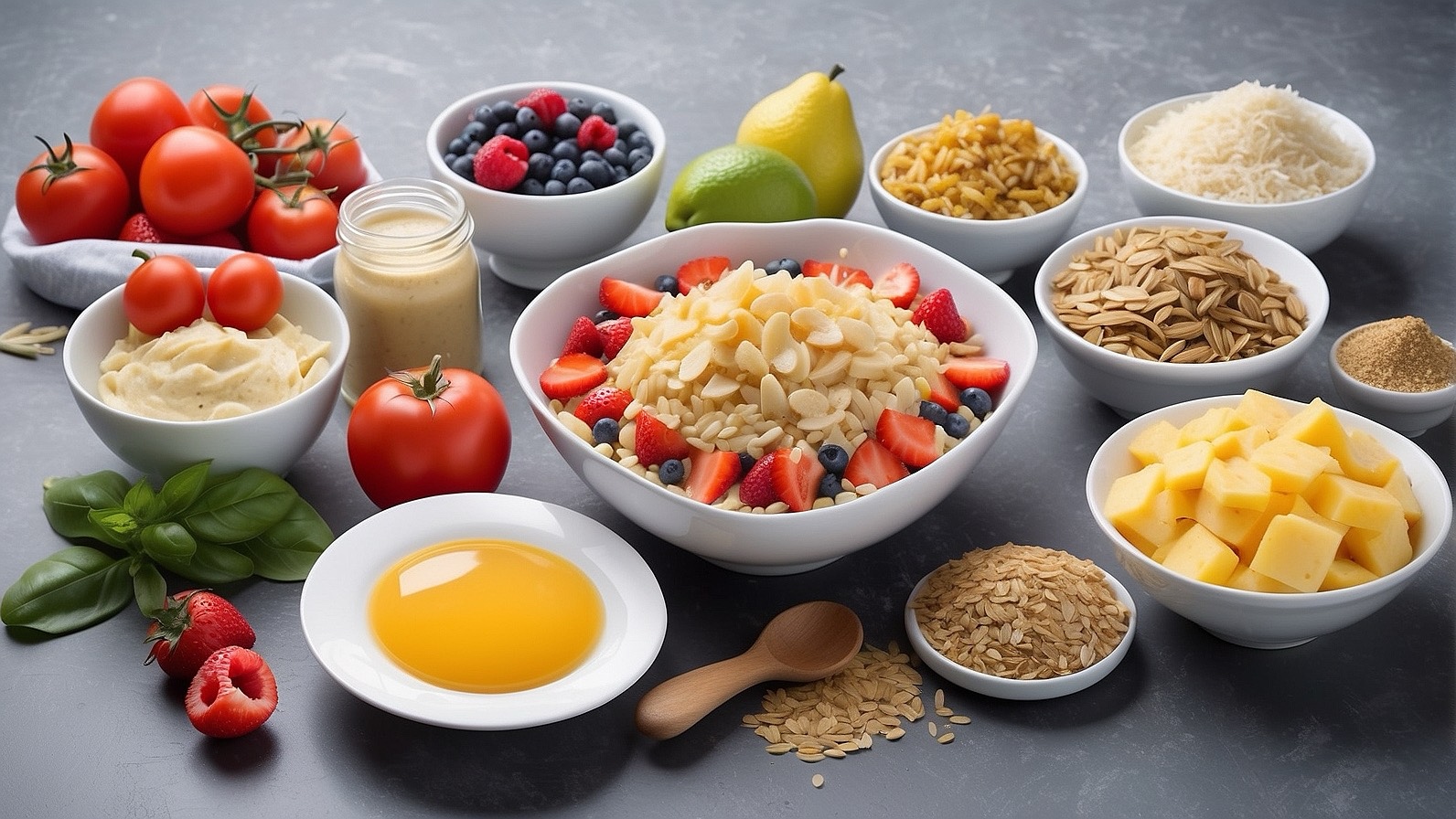 Mind
Mind
- Digital and Modern Well-being
- Mental Health and Emotional Well-being
- Mind-Body Connection and Holistic Health
- Parenting and Family
- Personal Growth and Development
- Relationships and Social Well-being
- Stress and Relaxation
- Therapeutic and Creative Practices
- Trauma and Recovery
- Work, Productivity, and Discipline
 Body
Body
 Fitness
Fitness
 Food
Food
 Beauty
Beauty
Benefits of Food Swaps and Substitutes

A Simple Change That Transforms Your Health
You’re making your usual morning coffee, reaching for sugar as always. But today, you swap it for a drizzle of honey. It’s a tiny switch, barely noticeable—yet over time, this simple choice cuts down refined sugar in your diet, supports your immune system, and provides a natural energy boost.
Food swaps like this may seem insignificant, but they add up in powerful ways. By making smart substitutions—without sacrificing flavour or enjoyment—you can improve digestion, manage weight, and even prevent chronic diseases. And the best part? You don’t have to give up your favourite meals to reap the benefits.
Why Smart Swaps Matter
Many of our go-to foods contain hidden sugars, unhealthy fats, and excess calories, leading to sluggishness, weight gain, and increased health risks. While cutting out entire food groups can feel restrictive, swapping rather than eliminating makes healthy eating sustainable and enjoyable.
The right substitutes can:
✔️ Boost nutrition – Increasing vitamins, minerals, and fibre in your diet
✔️ Reduce unhealthy ingredients – Cutting back on sugar, salt, and processed fats
✔️ Support digestion and gut health – Swapping refined grains for whole grains improves gut microbiome balance
✔️ Help with weight management – Keeping you full for longer without excess calories
And the best part? You can still enjoy everything you love—just in a healthier way.
Easy Food Swaps for a Healthier You
1. Better Breakfast Choices
Swap This: Sugary cereals 🥣
✅ For This: Porridge oats or Greek yoghurt with fruit 🍓
Refined cereals cause a blood sugar spike followed by an energy crash. Oats or Greek yoghurt provide sustained energy, keeping you fuller for longer.
💰 Cost Comparison: A box of sugary cereal costs around £3–£4 (UK) / $4–$5 (US), while a bag of oats is £1–£2 / $2–$3, lasting much longer.
2. Healthier Snacking Without the Guilt
Swap This: Crisps (Potato Chips) 🥔
✅ For This: Popcorn or roasted chickpeas 🍿
Traditional crisps are high in trans fats and sodium. Air-popped popcorn or roasted chickpeas give the same satisfying crunch without the excess calories or artificial additives.
💡 Tip: Make homemade popcorn and season it with cinnamon or nutritional yeast for added flavour.
3. Smart Cooking Fats
Swap This: Butter or vegetable oil 🧈
✅ For This: Olive oil or avocado oil 🥑
Butter and processed oils can contribute to heart disease when overused. Extra virgin olive oil contains heart-healthy monounsaturated fats, while avocado oil is great for high-heat cooking.
💰 Cost Comparison:
- Butter (250g): £2.50 (UK) / $4 (US)
- Olive oil (500ml): £4–£7 (UK) / $6–$10 (US)
Yes, olive oil costs more upfront, but a bottle lasts longer than butter sticks, making it a worthy investment.
4. Better Baking Substitutes
Swap This: White flour in baking 🍞
✅ For This: Almond flour or whole wheat flour 🌾
White flour lacks fibre and nutrients, while whole wheat or almond flour adds extra protein, fibre, and vitamins.
💡 Tip: When substituting whole wheat for white flour, use ¾ cup of whole wheat for every 1 cup of white flour to maintain texture.
5. Low-Calorie Sweeteners
Swap This: White sugar 🍬
✅ For This: Honey, maple syrup, or mashed bananas 🍯
Refined sugar offers empty calories, while honey and maple syrup provide natural antioxidants and minerals. For baking, mashed bananas or dates add sweetness and moisture without refined sugar.
💰 Cost Comparison:
- Sugar (1kg): £1.50 (UK) / $2 (US)
- Honey (340g): £3–£5 (UK) / $5–$8 (US)
Yes, natural sweeteners are pricier, but they’re more nutrient-dense and used in smaller quantities, making them last longer.
6. Healthier Pasta Alternatives
Swap This: White pasta 🍝
✅ For This: Whole wheat pasta, lentil pasta, or spiralised vegetables 🍠
Regular pasta is low in fibre and nutrients, whereas whole wheat or lentil pasta has more protein and fibre, keeping you satisfied for longer. Zoodles (zucchini noodles) are a great low-carb alternative.
💡 Tip: If switching completely feels too drastic, start with half white pasta, half whole wheat, then gradually increase the healthier option.
💰 Pricing:
- White pasta (500g): £1 (UK) / $2 (US)
- Whole wheat/lentil pasta (500g): £2–£3 (UK) / $3–$5 (US)
The Ripple Effect of Small Food Swaps
Food swaps aren’t about restriction—they’re about making better choices in a way that feels effortless. Even small changes, like choosing whole-grain bread instead of white or replacing creamy dressings with olive oil-based alternatives, contribute to long-term health improvements.
What’s Next? Try These Swaps Today!
- Next time you reach for sugar, try honey or maple syrup instead.
- Replace crisps with air-popped popcorn for a healthier crunch.
- Choose whole wheat pasta over white pasta in your next meal.
Your body will thank you, and the best part? You won’t even miss the old choices.
